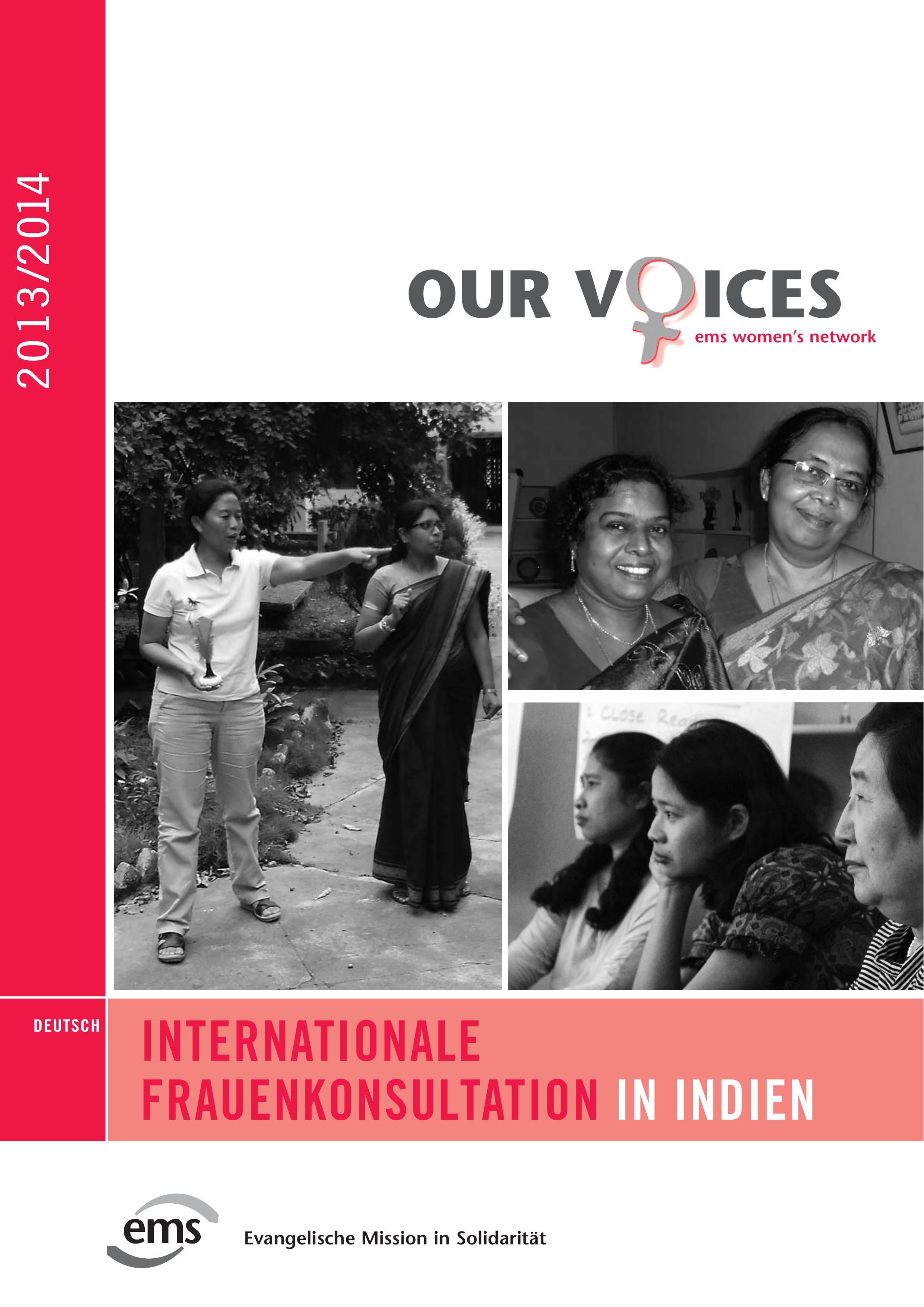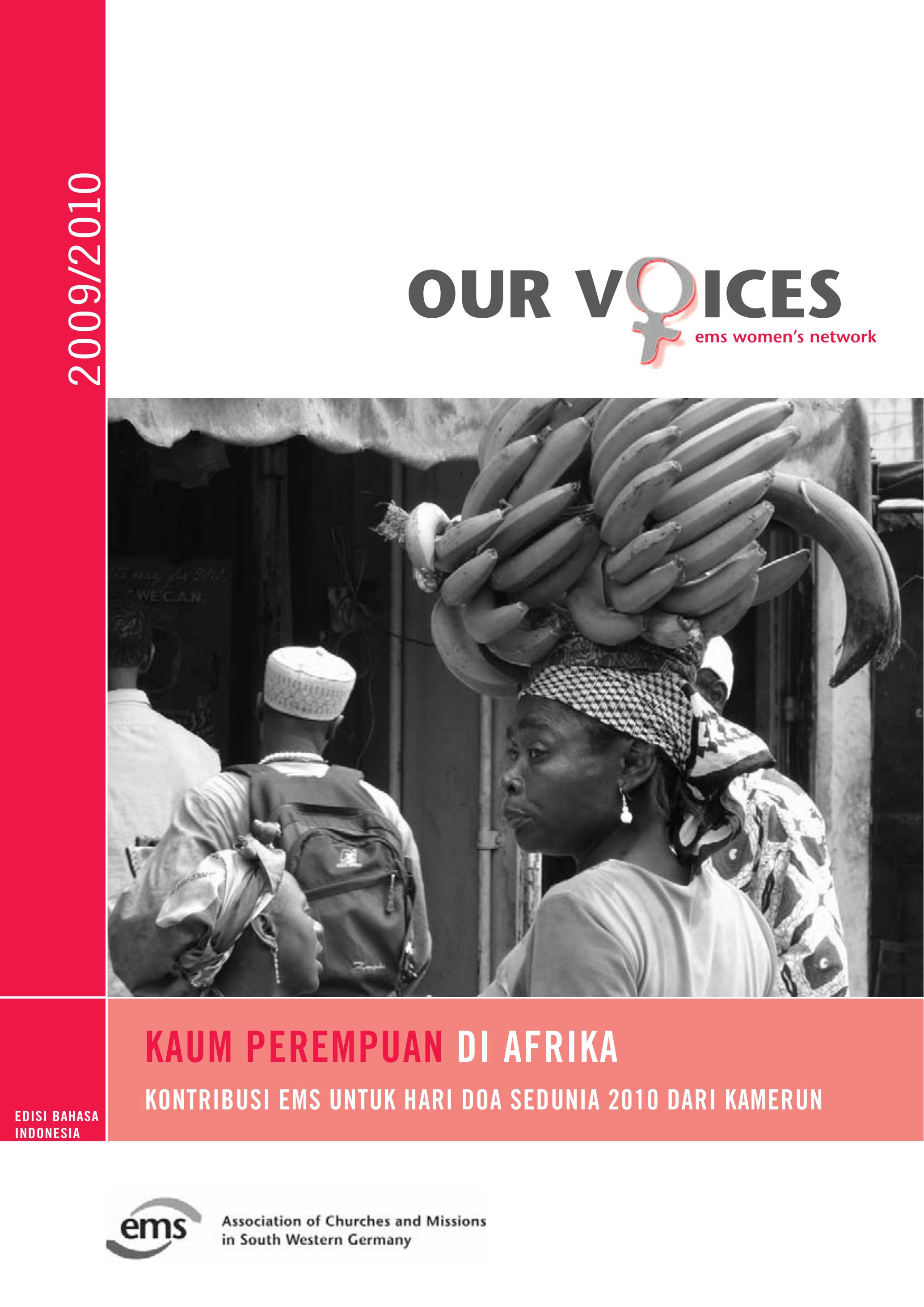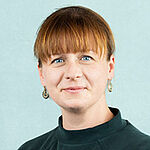Code of Conduct on how to prevent sexual harassment. Adopted by the Mission Council of the EMS in November 2019 in Hohenwart/Germany.
The Department of Women and Gender is part of a global movement. The two main topics are gender justice and women's rights.
Gender justice is achieved when all people can live free from discrimination and violence, regardless of which gender they identify with or their sexual orientation.
Women's rights as human rights have become even more important since the coronavirus pandemic. The increase in gender-based violence against women calls for international networking among women and a joint approach to preventing and combating gender-based violence.



Systematic Promotion of Women
As gender justice is an important prerequisite for sustainable development, the EMS systematically promotes women in its member churches. This is made possible through an international network of women in Africa, Asia and Europe, as well as designated, gender-sensitive indicators in project funding or support.
This way, young women are given a school education and vocational training, significantly increasing their chances on the labour market. One way the Evangelical Mission in Solidarity supports its member churches is by setting up women’s centres and rehabilitation centres, at which help is given to Christian, Hindu and Muslim women who are suffering through poverty, a lack of education or violence. Many other projects stem from the initiative of women – for example, the Sive School for the Deaf and the Masangane AIDS Programme in South Africa, or the work being done with disabled children on the Indonesian island of Sulawesi.
Women's Network
Women from the South and North have to meet to learn from each other and exchange ideas. For this reason, the Department of Women and Gender promotes mutual visits and international networking among women from churches and mission societies of the EMS in Africa, Asia, Europe and the Middle East.
Cooperation within the network is advised and strengthened by liaison women in the member churches: Rebecca Abladey (PCG, Ghana), Dr. J. Jasmine Alley (CSI, India), Dr. Rima Nasrallah (NECB, Lebanon), Buyiswa Sambane (MCSA, South Africa), Dr. Lydia Tandirerung (STT INTIM, Indonesia), Bliss Kharadi (CNI, India), Shoko Yamagami (UCCJ, Japan). They form a bridge between their churches and the subject of women and gender in the EMS.
Together, the liaison women develop and promote the campaign against gender-based violence, which is currently the main focus of the work. The knowledge of global solidarity invites women and men beyond the borders of EMS member churches and missions to participate in the campaign.
Our Voices
For 30 years now, OUR VOICES has been the publication of the EMS Women's Network. Once a year, the magazine offers space for voices and contributions from the international EMS Women's Network – each on a key topic. In 1992, the first issue was published in English, later a German translation was added and since 2006 there has also been an Indonesian version. The current issue, celebrating the 30th anniversary in 2022, has also been translated into Arabic for the first time. In four languages, women explore the question of what churches and congregations can do against gender-based violence.
Gender Policy and Code of Conduct
The EMS approved the first version of the document “Gender Policy – Guidelines for more gender justice” in November 2006. The Mission Council then submitted the second, linguistically-updated, version in November 2015. The Gender Policy does not define gender as one specific area of responsibility, but as a cross-sectional task that must be taken account of in all programmes and all areas.
“Within churches, it is a special responsibility of people in positions of power to emulate Christ by not abusing the imbalance in relationships, but by acting respectfully towards each other and monitoring the implementation of the guidelines.”
The guidelines ensure that this issue is rooted in the international and ecumenical fellowship of the EMS. This way, the EMS is also tackling the challenge of considering and conceiving gender justice in intercultural dimensions. This requires the courage to not only question things that one may consider matter of course, but also to touch on the question of equality in cross-cultural dialogue.
In June 2019, the EMS Mission Council unanimously approved the draft for a new code of conduct regarding sexual abuse. This is a five-page guideline document regarding the fundamental and practical prevention of sexual abuse, and how to deal with any incidents of sexual abuse during events and programmes, for which the EMS is responsible.
Code of Conduct
Gender Policy
The gender guidelines refer to general decision processes and programmes within the EMS Fellowship and the EMS Secretariat in Stuttgart.
Position Paper Gender-based Violence
The International Women’s Network of EMS insists on a clear zero-tolerance approach towards all forms of violence.
Thank you for your interest in the work of the EMS Gender Desk. If you have any general questions, please use the contact form below. We are also happy to help you personally if you have any questions or require further information – by phone or by E-mail.
Eleanor McCormick
Head of Unit Intercultural Theology and Education, Women and Gender
+49 711 636 78 -33
Sabine Gehlen
Assistant Intercultural Theology and Education, Women and Gender
+49 711 636 78 -17
Anda Nkosi
Coordinator of the International Women's Network


















































